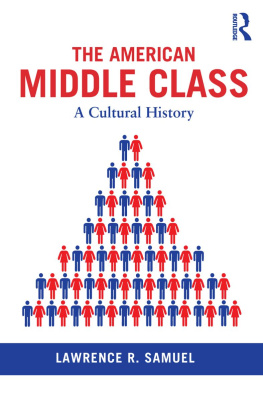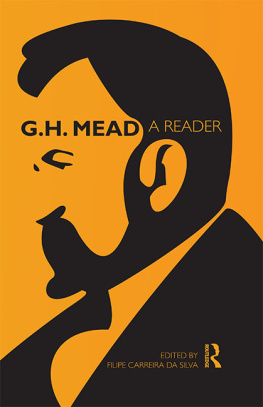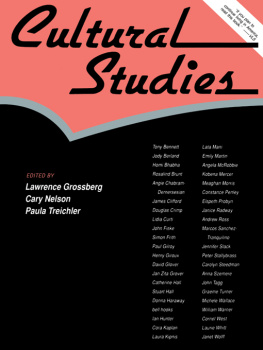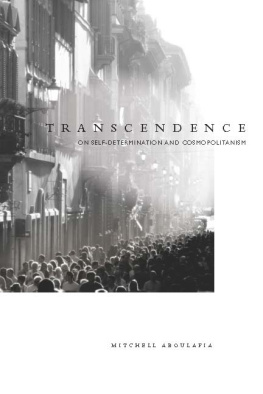J. M. W. Turner, Rotterdam Ferry Boat, 1833
BURDENS OF FREEDOM
BURDENS OF FREEDOM
CULTURAL DIFFERENCE AND AMERICAN POWER
Lawrence M. Mead
2019 by Lawrence M. Mead
All rights reserved. No part of this publication may be reproduced, stored in a retrieval system, or transmitted, in any form or by any means, electronic, mechanical, photocopying, recording, or otherwise, without the prior written permission of Encounter Books, 900 Broadway, Suite 601, New York, New York, 10003.
First American edition published in 2019 by Encounter Books, an activity of Encounter for Culture and Education, Inc., a nonprofit, tax exempt corporation.
Encounter Books website address: www.encounterbooks.com
Manufactured in the United States and printed on acid-free paper. The paper used in this publication meets the minimum requirements of ANSI/NISO Z39.481992 (R 1997) (Permanence of Paper).
FIRST AMERICAN EDITION
LIBRARY OF CONGRESS CATALOGING-IN-PUBLICATION DATA
Names: Mead, Lawrence M., author.
Title: Burdens of freedom : cultural difference and American power / by Lawrence M. Mead.
Description: New York : Encounter Books, [2019] | Includes bibliographical references and index.
Identifiers: LCCN 2018043848 (print) | LCCN 2018055843 (ebook) | ISBN 9781641770415 (ebook) | ISBN 9781641770408 (hardcover : alk. paper)
Subjects: LCSH: IndividualismPolitical aspectsUnited States. | National characteristics, American. | Cultural pluralismPolitical aspectsUnited States. | United StatesPolitics and government. | United StatesForeign relations.
Classification: LCC JC599.U5 (ebook) | LCC JC599.U5 M387 2019 (print) | DDC 306.20973dc23
LC record available at https://lccn.loc.gov/2018043848
Credits:
Frontispiece: J. M. W. Turner, Rotterdam Ferry Boat, 1833. Permission granted by the National Gallery of Art
: Hulton Archive/Intermittent/Getty Images
: Robert Walter Weir (American, 18031889). Embarkation of the Pilgrims, 1857. Oil on canvas, 48 1/8 72 1/4 in. (122.2 183.5 cm). Brooklyn Museum, A. Augustus Healy Fund and Healy Purchase Fund B, 75.188
: Alissandra Petlin/New York Times Magazine
: Benjamin Lowy/New York Times Magazine
: The Economist Newspaper Limited, London
: Philip Toscano/PA Archive/PA Images
: Jesus Blanco de Avellaneda/Associated Press
: U.S. Navy photo by Mass Communication Specialist 2nd Class Kristopher Wilson/Released
: Permission granted by the artist, Boris Vallejo
For Kirt
Am I my brothers keeper?
(Genesis 4:9)
CONTENTS
PART ONE
HISTORY AND CULTURE |
PART TWO
OTHER ROOTS OF POWER |
PART THREE
CHALLENGES AT HOME |
PART FOUR
FUTURE CHALLENGES |
PREFACE AND ACKNOWLEDGMENTS
Burdens of Freedom makes a simple but radical argument: The United States is an individualist country. By this I mean that most Americans think of life as an effort to realize their own goals and values out in the world. This may sound obvious, but almost no previous author, to my knowledge, has said this. Many have said that America is a free country, or a democratic country, but not an individualist one. The very idea has been, perhaps, too sensitive.
Worldwide, it turns out, individualism is quite unusual. That temperament was the chief reason why first Europe, then Britain, and then America came to lead the world. But today, our chief challenges come from groups within our society, and nations abroad, who are not individualist, who think of life in more cautious and collective terms. To continue to lead, America must come to terms with that world yet remain an individualist nation.
This is the first book to discuss Americas prospects in cultural terms. I was driven to write it by three problems Ive wrestled with for decades. To understand any of them I finally had to invoke culturethat is, differences in what different groups and nations think life is about.
The first problem is persistent poverty in the United States. How can a sizable minority of Americans remain jobless and deeply impoverished in the worlds richest countryeven when jobs are available? Most of my previous work has been about how to raise work levels among the poor and thus reduce poverty.
A second problem is the troubled assimilation of many recent immigrants to the United States. Since the 1960s, on average, these newcomers have had much more difficulty getting ahead and avoiding social problems than the immigrants we remember nostalgically from a century ago. Immigration in Europe has been similarly troubled.
The third problem is persistent governmental failure in many developing countries. I was taught in graduate school, in the 1970s, that the new nations that became independent in the 1960s when the European empires were dissolved would steadily converge to Western political norms, becoming well-governed and free. But most have failed to do so. How to cope with failed states in Africa and elsewhere has become one of Americas greatest challenges.
In the orthodox view, all these problems reflect a lack of opportunity. The poor or recent immigrants remain disadvantaged because society has not done enough to help them to work, get through school, and avoid other problems. Scholars earnestly search out new barriers to explain these difficulties. And struggling nations are said to fail because the world economic system is unfair to them, or simply because the West has not saved poor countries from misrule. All these analyses are structural. There is usually no mention of culture, no suggestion that those suffering from hardship differ in any personal way from the more fortunate. Everyone, rich and poor, is assumed to be fundamentally the same, differing only in external conditions and resources.
I finally concluded that this consensus represents denial. Half a century after the War on Poverty, the expansion of immigration, and the liberation of the colonies, outside conditions no longer explain well why disadvantage persists. We must reckon with obvious differences in attitudes between the more and the less fortunate. While some scholars of poverty and development have been driven to speak of culture, none has yet invoked the research on world cultural differences that I cite here. These studies highlight the difference between Western assertiveness and the more passive mind-set of the non-West. That difference, I think, chiefly explains all three of the problems above. Individualism, it turns out, is simply better at both economic and political development than the mind-sets of nearly all of the non-West, despite its great diversity.
Yet Western culture is not simply to be praised. It does not serve all important values, and it imposes severe burdens on our free society. Freedom is not free but is ultimately a form of obligation. Thus, a cultural perspective casts an unsparing light not only on Americas chief challenges but on our own society and the entire Western tradition.













